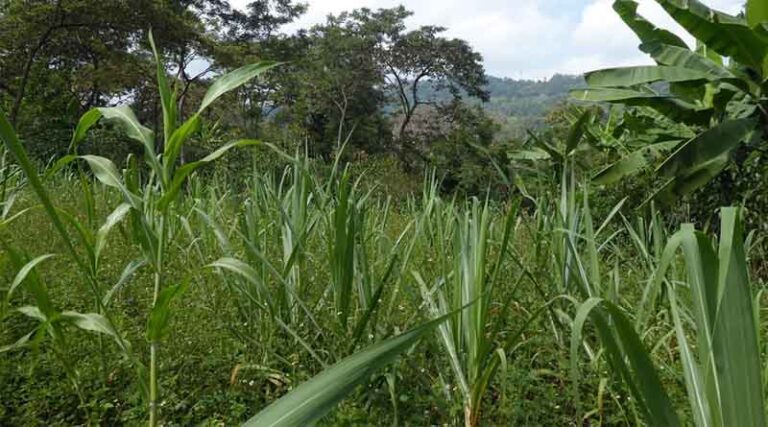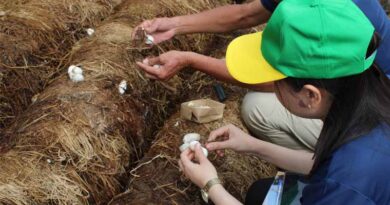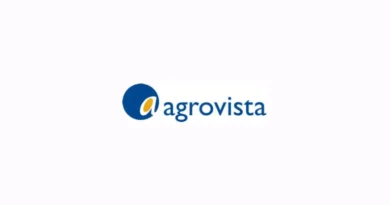
Ethiopia’s Agroecology Strategy Moves Forward with Expert Contributions
11 October 2025, Ethiopia: In November 2024, the Ethiopian Ministry of Agriculture (MoA), in collaboration with CIFOR-ICRAF, and the Alliance of Biodiversity International and CIAT, organized a consultative workshop to discuss developing a National Agroecology Strategy to transform food systems in Ethiopia. The meeting, initiated by CIFOR-ICRAF, led to the formation of a technical task force (TF) made up of representatives from government, research institutions, civil society, and development partners. The TF has been working on the strategy over the past few months.
As part of the strategy development process, a five-day writeshop was organized from 11–15 August 2025 in Adama, Ethiopia to collect expert inputs on the proposed activities under the six strategic objectives of the strategy. The writeshop was led by the Ministry of Agriculture and supported by CIFOR-ICRAF, the Alliance of Biodiversity International and CIAT, Deutsche Gesellschaft für Internationale Zusammenarbeit (GIZ), and World Vegetable Center, demonstrating an exemplary partnership.
Opening the writeshop virtually, State Minster of the Ethiopian MoA, Prof. Eyasu Elias, said, “The Agroecology Strategy serves as a critical framework to guide Ethiopia’s transition toward a more sustainable, resilient, and equitable food system.” According to him, the strategy addresses challenges such as soil degradation, climate change, biodiversity loss, and nutrition security, ensuring that agricultural development supports both people and the environment.
The State Minster told the writeshop participants that by establishing a TF, the MoA had been spearheading the development of the agroecology strategy, demonstrating strong national commitment.
Forty-six experts from 26 institutions spanning government, research, academia, civil society, and development partners came together for the writeshop. Dr. Endalkachew Wolde-Meskel, Senior Scientist and Research and Development Advisor at CIFOR-ICRAF, thanked the participants for gathering in Adama and for dedicating their valuable time to contribute to the development of the strategy.
In his presentation on agroecology, Endalkachew, told the participants that Ethiopia is a country of high diversity, which is endowed with 18 agro-climatic zones and 21 of the 32 major soil groups of the world. He emphasized the importance of agroecology for Ethiopia, as it enhances the interactions between plants, animals, humans, and the environment, while promoting a sustainable and equitable food system.
He referred to an assessment conducted by CIFOR-ICRAF in early 2024 across three districts in Ethiopia, where the GIZ ProSoil Ethiopia project was implemented, to evaluate their agroecological transition levels. The results clearly showed that farms benefiting from the project were at more advanced agroecological transition levels compared to those that were not. The agroecology strategy is expected to guide future initiatives by the government and development partners to scale up agroecological practices across Ethiopia.
Dr. Zenebe Adimassu from CIAT highlighted the need for the national agroecology strategy in response to the rising global demand for sustainable practices and growing focus on climate resilience, making its integration into national policies increasingly important.
At the writeshop, six technical working groups discussed the six strategic objectives including Sustainable Farm Practices; Knowledge, Research and Capacity Building; Market and Value Chain Development; Policy and Governance; Social Inclusion; and Sustainable Consumption and Healthy Diets. Overall, the strategy comprises over 110 actionable activities under 26 strategic focus areas, with clear financial and implementation plans.
The six thematic working groups, each consisting of 5–10 professionals with expertise in their respective areas, made significant contributions to developing an evidence-based, practical, and actionable strategy. Drawing on their in-depth knowledge, hands-on experience, and innovative thinking, they ensured the strategy is both technically sound and feasible for implementation.
CIFOR-ICRAF has played instrumental roles in the development of the national agroforestry, dryland and forest fire protection strategies, as well as the forest development, protection and utilization regulation of Ethiopia.
Acknowledgments
The development of the National Agroecology Strategy of Ethiopia is being supported by the CIFOR-ICRAF and the Alliance of Biodiversity International and International Center for Tropical Agriculture (CIAT) through the TRANSITIONS programme’s METRICS Project.
The METRICS project is part of the TRANSITIONS programme and is implemented by The Alliance of Bioversity and CIAT, CIFOR-ICRAF, IRRI, IWMI, The Transformative Partnership Platform on Agroecology, and the University of Vermont. It is generously funded by the European Union and managed by IFAD.
Also Read: PM Modi to Launch Two Big Agricultural Initiatives for Farmers on 11th October
📢 If You’re in Agriculture, Make Sure the Right People Hear Your Story.
From product launches to strategic announcements, Global Agriculture offers unmatched visibility across international agri-business markets. Connect with us at pr@global-agriculture.com to explore editorial and advertising opportunities that reach the right audience, worldwide.






